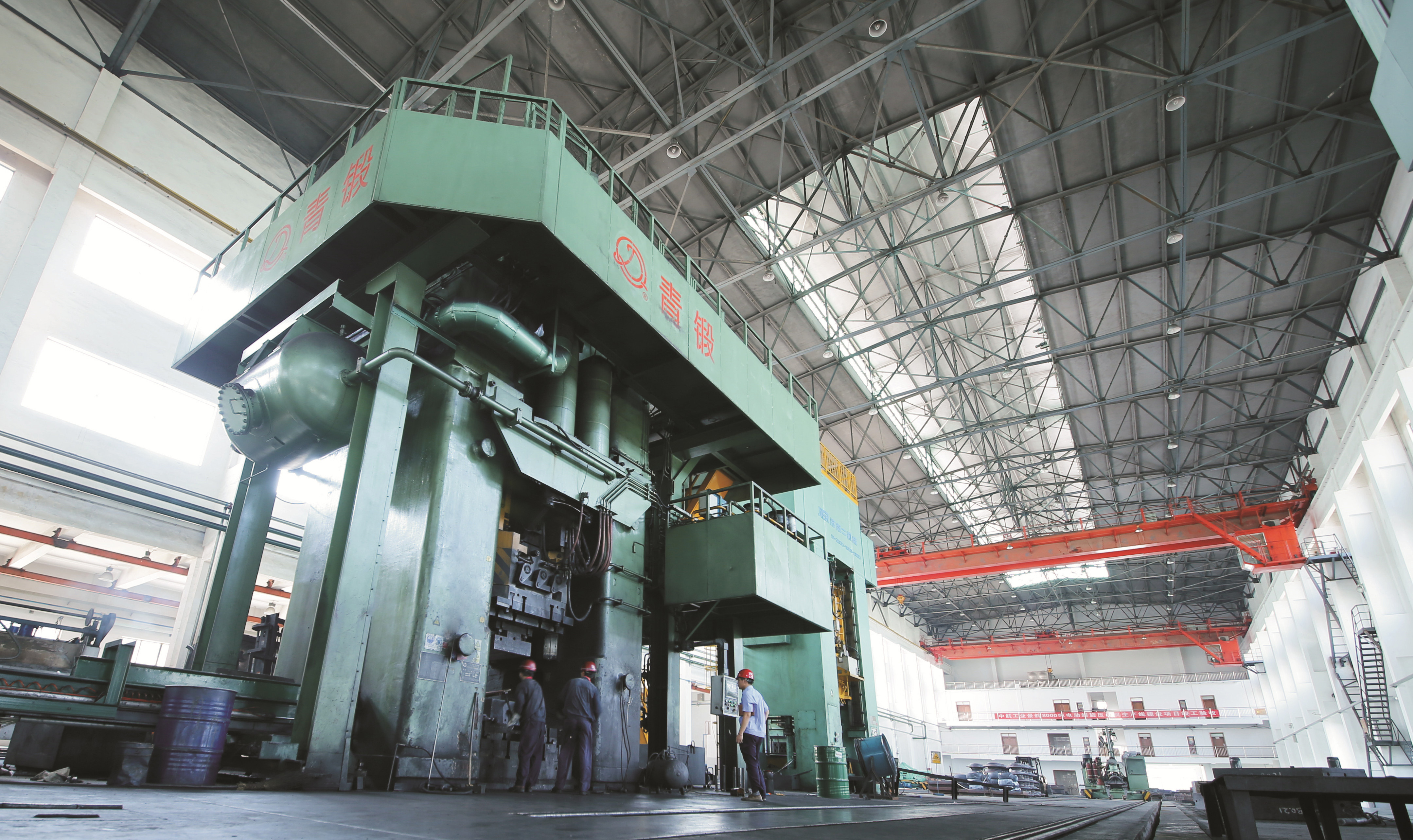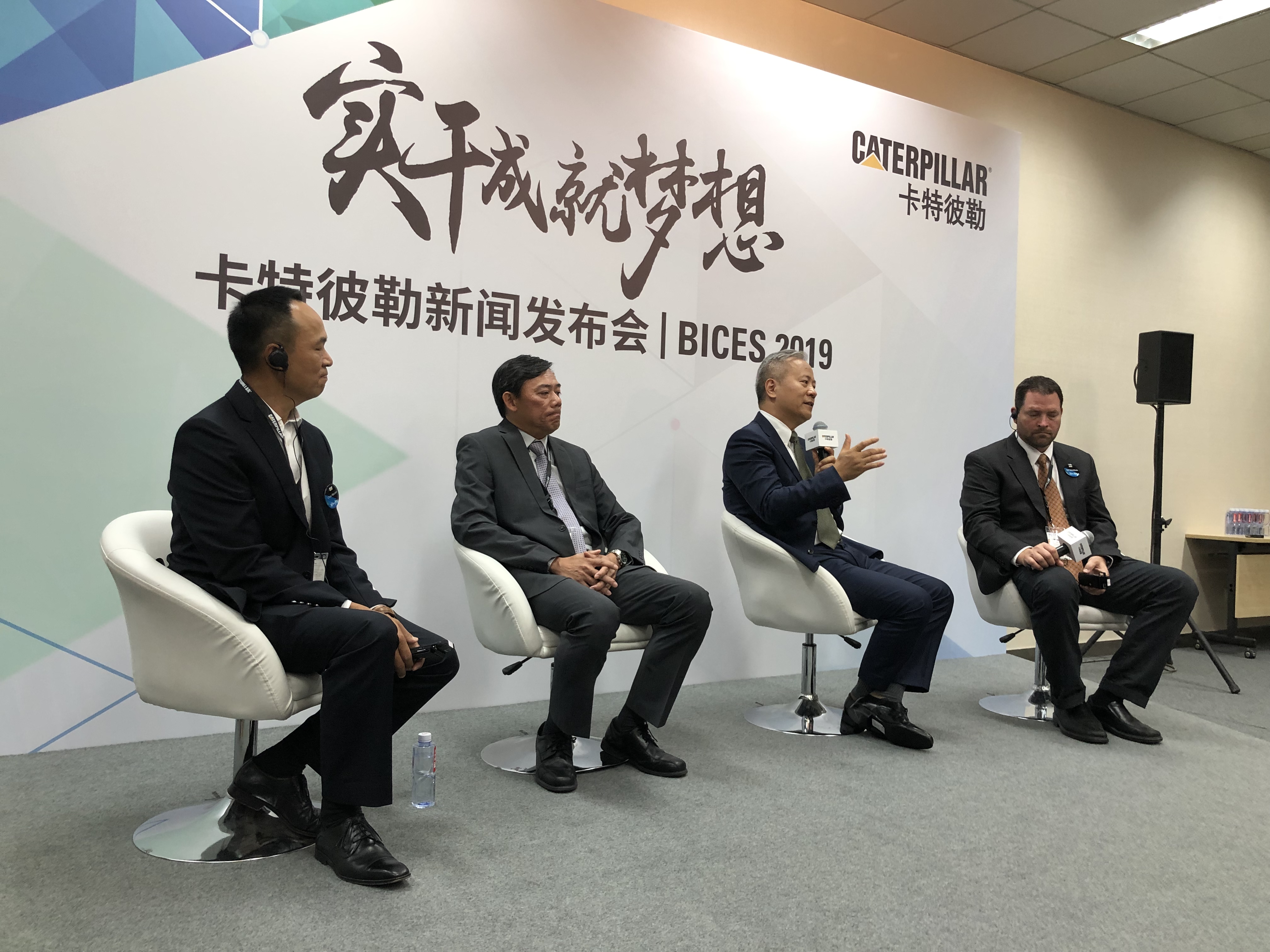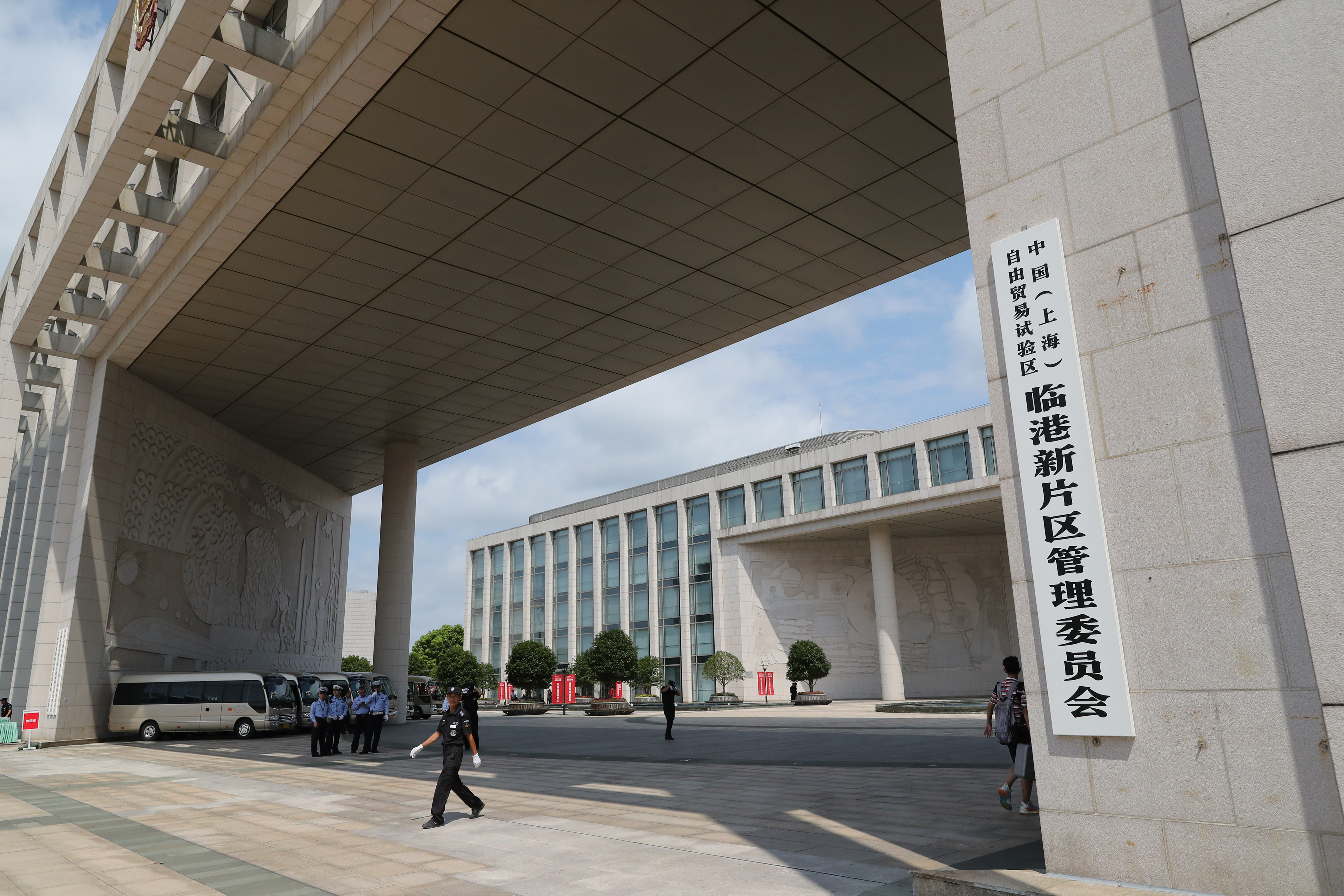Although the lingering trade dispute has caused U.S. businesses to be more cautious about investment decisions, most have no intention of stepping back. The Chinese market still offers ample room for cooperation and opportunities to overcome the challenges.
by Xinhua writers Wang Yaguang, Zhou Qianxian, Shen Yang and Chen Yushan
BEIJING, Sept. 12 (Xinhua) -- Of the U.S. companies investing in China, some dive right in while some cautiously dip their toes, but few want to miss out on the opportunities the market affords.
Although the lingering trade dispute cause U.S. businesses to be more cautious about investment decisions, most of them have no intention of retreating from China. They will stick to the Chinese market and supply chains, expanding their presence and enhancing cooperation with Chinese partners to overcome the challenges.
COMMITTED TO CHINA MARKET
The 2019 member survey of the U.S.-China Business Council (USCBC) showed that for the council's more than 220 member companies, the Chinese market remains a priority over other markets due to its significance as a driver of revenue growth.
Some 97 percent of the USCBC member companies reported increased profitability in China in 2019. "It's very important for worldwide competitiveness that these companies be in China and be successful there," said USCBC president Craig Allen, expecting the profitability to be higher with China further opening up the market.
To tap into the China market, U.S. materials science conglomerate Dow broke ground in June on a new silicone specialty resin line in Zhangjiagang City of eastern China's Jiangsu Province, the third new line it has invested in over the past three years.
Calling China a strategic market, a manufacturing and innovation hub for Dow and an important part of the international supply chain of Dow, Lim Yoke Loon, Dow's Greater China president, said: "We are here for the long run."
Dow in 2009 opened the Shanghai Dow Center, its largest integrated R&D center outside the United States. More than 20 new labs were moved to the center last year to facilitate growing needs from downstream businesses like consumer care, auto and electronics.
To meet growing market demand, Kohler Engines, a U.S. producer of engines and parts with a deep presence in China, rolled out a new production line earlier this year at its manufacturing plant in Chongqing Municipality, a vehicle-manufacturing powerhouse in southwest China.

Drones make up Chinese characters saying "empowering economy" during a drone light display in southwest China's Chongqing, Aug. 26, 2019. (Xinhua/Wang Quanchao)
"The Chongqing plant has produced nearly 9 million engines since it was built in 2007," said Dong Chongqing, senior marketing manager of Kohler Engines China, adding that the strong performance has reinforced their confidence to further grow with China.
To promote its products in the Chinese market, Mattracks Inc., a U.S. manufacturer of rubber track conversions, set up a representative office in Shanghai in 2010.
"We value the market and want to have a presence here," said Brian Liu, chief representative of the Mattracks Shanghai representative office.
The USCBC said the majority of American companies surveyed remain committed to the China market, with 87 percent of them planning to continue to invest in China.
IRREPLACEABLE IN SUPPLY CHAIN
Although costs rise in China, U.S. businesses do not want to abandon their long-standing supply relationship. They manage to absorb rising costs or find ways to share with suppliers or customers.
"We have been cooperating with Caterpillar for more than two decades, and our bond cannot be easily broken down," said Wan Jianping, general manager of China's Jiangxi Jinghang Aviation Forging & Casting Co., which produces parts for U.S. heavy machinery giant Caterpillar Inc.

An 80MN numerical-controlled electric screw press at China's Jiangxi Jinghang Aviation Forging & Casting Co., in Jingdezhen, east China's Jiangxi Province. (Xinhua)
Industrial products are not as cost-sensitive as consumer goods; factors such as quality control, services, production efficiency and manufacturing clusters are more important. Some lower-cost countries cannot compete with China in terms of these factors, Wan said, adding that China's rising efficiency can largely offset the cost increases.
Wan's company is just one of Caterpillar's more-than-400 Chinese suppliers. "We have forged a solid strategic cooperation partnership with our Chinese dealers and suppliers in our 43-year operation here, and our jointly pursuing sustainable development in the market will not change," said Chen Qihua, vice president of Caterpillar Inc.

Chen Qihua, vice president of Caterpillar Inc., speaks at the press conference to launch new products at the new venue of China International Exhibition Center in Beijing, capital of China, Sept. 4, 2019. (Xinhua/Zhang Zhaoqing)
"The truth of the matter is, we've been trying to get out of China for years, but they just seem to do it better than anybody else," Rick Helfenbein, president and CEO of the American Apparel and Footwear Association, said when asked whether U.S. companies could somehow shift supply chains out of China at a public hearing held by the Office of the U.S. Trade Representative.
"There are limited places ... we can go," Helfenbein said, adding that the next possible locations following China -- Vietnam, India, Indonesia and Bangladesh -- are simply not cost-effective.
Lack of experienced manufacturing workers, electricity and industrial clusters are also main obstacles of moving production to some Southeast Asian countries, Dong Chongqing said.
INVESTMENT WELCOMED
"China has a vast market. We welcome enterprises from all countries, including those from the United States, to expand economic, trade and investment cooperation with China and achieve mutually beneficial results," Premier Li Keqiang said Tuesday when meeting with American delegation visiting China.
China will only open wider to the outside world and is committed to creating a market-oriented, law-based international business environment where domestic and foreign enterprises are treated equally and the protection of intellectual property is given priority, the premier said.

An exterior view of the Lingang area administrative committee in east China's Shanghai. The new Lingang area of the China (Shanghai) Pilot Free Trade Zone was officially launched on Aug. 20, 2019. (Xinhua/Fang Zhe)
To further open up its market, China unveiled a series of measures, including a shortened negative list for foreign investment as well as scraping investment quotas on the Qualified Foreign Institutional Investors (QFII) scheme and its yuan-denominated sibling RQFII.
Having worked in Caterpillar for 25 years and now with responsibility for the company's China operations, Chen Qihua said China's business environment is becoming more open, transparent and fair.
Although the China-U.S. trade dispute increased uncertainties, U.S. companies operating in China are looking at the frictions from a long-term perspective.
"Kohler Engines has gone through lots of economic fluctuations and regional trade disputes in its 100-year-long history. The China-U.S. trade dispute causes fluctuations but will not be a disaster. We focus on long-term sustainable development," Dong Chongqing said.
The uncertainty triggered by the trade dispute is eroding global growth and increasingly challenging, and "we hope the U.S. and Chinese authorities can continue negotiations to resolve trade tensions and ensure free and fair treatment for domestic and foreign invested enterprises," Lim Yoke Loon said.
(Video reporters: Chen Yushan, Zhang Zhaoqing; Video editor: Li Ziwei)



